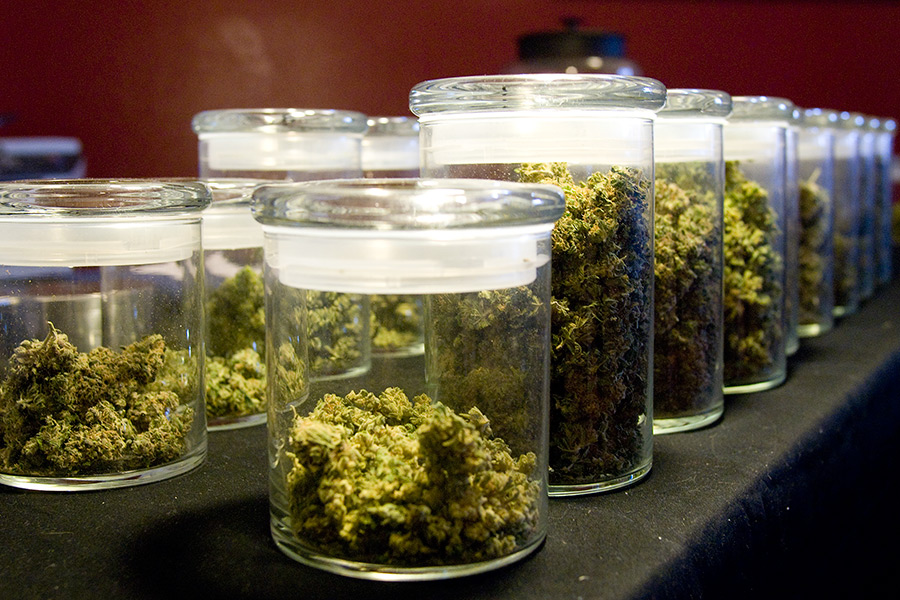The House Business and Labor Committee and House Taxation Committee held lengthy hearings last week on three proposals offering different rollouts for recreational marijuana.
House Bill 670, authored by Rep. Derek Skees, R-Kalispell, is the most closely aligned with Initiative I-190 voters passed last November, but still drew substantial opposition in hearings.
“Recreational marijuana is here, whether we like it or not,” Skees said before the House Business and Labor Committee. “The goal of this bill is not to make it overly complicated, and to do the best not to grow state government.”
Skees’ bill would allow medical and recreational marijuana businesses to operate under a single license. The bill raises the medical marijuana tax rate from 4% to 5%, lowers the proposed recreational tax from 20% to 15%, and pushes back the start of recreational marijuana sales to March 2022.
The bill also places one-third of revenue from recreational marijuana into a trust fund to “address the future negative impacts of this drug.”
“This will give future legislatures the resources to appropriate where the need will be,” Skees said. “If we do not save this revenue today, we will end up in a position that takes the state general fund to address these problems.”
The remaining two-thirds of the tax revenue would go toward the eight public pension systems.
Another bill, House Bill 707, presented by Rep. Brad Tschida, R-Missoula, would treat recreational marijuana similarly to alcohol and allow the state to tax wholesale transactions, rather than retail sales. Tschida said this would allow the revenue department to oversee the process without increasing in size, and create a three-tiered system of growers, wholesalers and dispensaries.
Tschida’s bill would also utilize a “purple card,” which would be a license for home growers to grow four plants for their own use.
Rep. Mike Hopkins, R-Missoula, presented House Bill 701, which has more than 50 co-sponsors in the House and Senate, as well as the backing of Gov. Greg Gianforte.
HB 701 would issue the first recreational licenses after Jan. 1, only allow existing medical marijuana providers to apply for licenses to sell the product for the first 18 months, and keep the tax on recreational marijuana at 20%, while allowing counties to add a local tax option of up to 5%. Revenue from sales would be directed towards the “HEART Fund,” an account proposed by Gov. Gianforte to pay for mental health and substance abuse treatment.
In addition, HB 701 would require each county to opt-in to recreational sales. The bill also institutes THC limits and restricts anyone with a drug-related conviction from participating in marijuana business.
HB 701 had many proponents speak from the medical marijuana industry as well as Dave Lewis, a former Republican legislator. The opposition testimony, which lasted over an hour, included members of conservation groups asking that tax revenue be appropriated to public lands as well as Pepper Peterson, president and CEO of the Montana Cannabis Guild and one of the architects of I-190.
Peterson spoke against the local authority of counties over licenses and the opt-in standard. He said that all current medical growers and dispensaries should be grandfathered in under the new legislation.
“I want to encourage a no vote on this because it has so many problems,” Peterson said.
All three bills passed through committee last week and passed House votes on April 6. The measures will be voted on once more in the House before moving on to the Senate.
